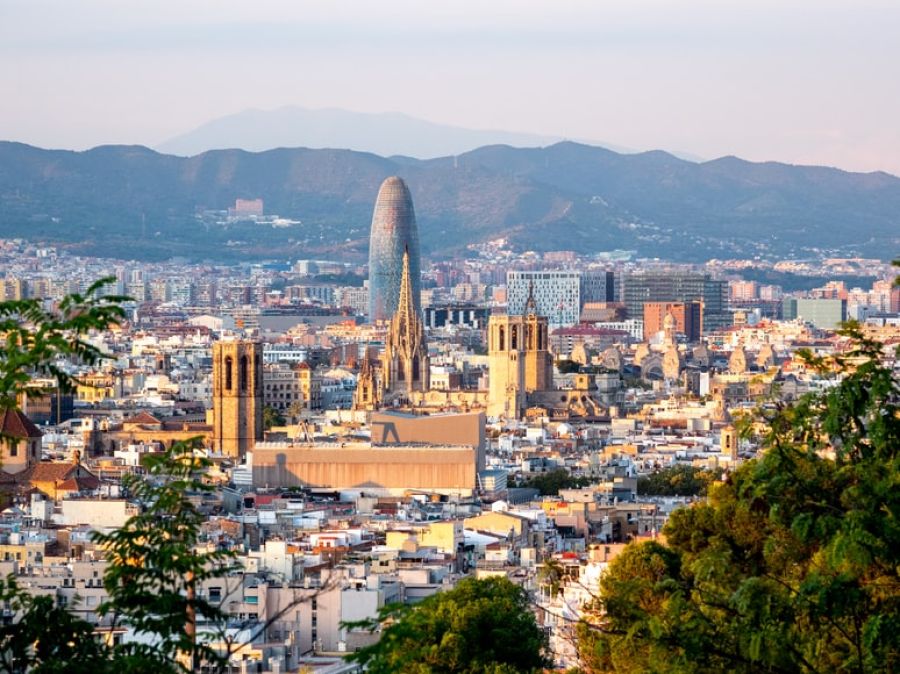Joan Campreciós
Member of the Commissariat of the Barcelona Metropolitan Strategic Plan (PEMB)
The territory of the Barcelona Metropolitan Region is recognized as a wide and diverse space, with strong interrelationships and transversal dependencies, for which a clear answer to a basic need is still lacking. Do we need innovative formulas for governance that improves the management of its challenges?
However, before answering this question, it is appropriate to refer to some of the singularities of this territory and also to some of its most important emergencies. This reality and these challenges must serve to highlight the extent to which it is appropriate and perhaps necessary to think and propose the best ways to manage the reduction of unresolved needs.
It is a region made up of a strong plurality of cities, with very deep-rooted singularities and a long history, which, in many cases, are unique local capitals, with the capacity to attract and be a reference in specific aspects. It is not, therefore, a diffuse territory from a large city. This historical reality is a potential that makes this territory unique.
The metropolitan reality is reinforced by the fact that it is a space that shares, in a unique way and with great environmental value, urban territories with natural spaces. This configuration distinguishes both the origins and the dynamics of the relationships that are established between the different cities.
However, this fact also implies that any proposal must be based on an attitude of equal co-responsibility and not on a vision that prioritizes spaces and attitudes, some of which are central and others of complementarity. If so, it could lead us to think of different categories within the same territory.
So, if we take as a reference the debate that has arisen and the participation of the representatives of the local administrations present at the round table “What governance do we want for the metropolitan region of the future?”, We immediately see that today we are, from the local issues, with problems that often escape the local capacity to address the solution.
These are problems or challenges that take on a supralocal dimension, although their impacts are directly on local life, on cities and on their citizens. And, in the face of all this, local administrations, especially town councils, do not have sufficient financial capacity and, sometimes, not the competence framework to be able to overcome these challenges, although they often assume non-competitive services, which the citizens demand.
These are challenges, needs and perhaps urgencies that any analysis of the Barcelona Metropolitan Region reveals. These are a series of fundamental issues that still do not have a clear solution today. We can talk, in a simplified but prominent way, about housing, mobility, social and territorial inequalities, the environment and sustainability policies, the economic dimension and its promotion, among others. These are urgent needs that need to be addressed with a metropolitan global vision.
And I want to emphasize, in a special way - and this was also the case throughout the conference - the need to plan a transport network for regional mobility that breaks with centralist schemes and is firmly committed to a network with transversal connections and for a grid structure that combines the different modes of mobility.
In short, the challenge that the day presents to us is what would be the most appropriate formula to solve these needs. Institutional governance, or through other instances of specific management, for each of the issues, but in any case, with the will to bring together, with a shared leadership, with an organization that prioritizes a representation of the institutional diversity of 'this territory, with an egalitarian, balanced and inclusive will.
A governance that also has the will to bring together and link the wide and diverse institutional and social bodies that exist throughout the regional territory, making them all an asset with many opportunities for the development of projects of all kinds.
In short, it would be a question of returning to an old paradigm of public administration: improving the management of a territory to better meet the needs of its citizens. Challenges need to be answered efficiently and adapted to the realities of the moment.
"What governance do we want for the metropolitan region of the future?" is a conference organized by the Catalunya Catalunya Foundation, the Barcelona Metropolitan Strategic Plan (PEMB) and the Club of Rome, which is part of the“ Multilevel Metropolis ”debate series of the participatory process Barcelona Demà Compromís Metropolità 2030, launched by the PEMB.You will find more information about the session here








